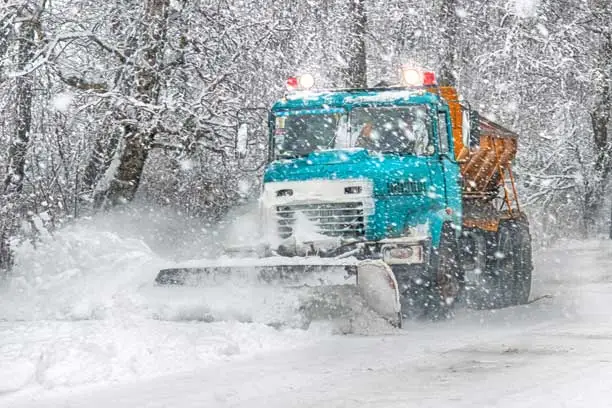Winter Weather Notices You Need to Know


If you live in a region that gets snow and ice, you know that storms can be major events, and that you need to know how to prepare. Bad weather can put a damper on travel plans — even if that plan only involves driving to work.
During winter months, you probably start and end your day by watching the weather forecast or checking the weather app on your phone. When the forecast calls for a winter storm, do you know how to differentiate between the various terms? Or do you still find yourself wondering, what is a winter storm watch, anyway?
From blizzard warnings to wind chill alerts to how to prep for a winter storm, we’ve developed a handy guide to help you understand what the different winter weather notices mean and what you should do to get ready. And to make sure that your home is covered no matter what happens, speak to a Farm Bureau agent about homeowners insurance.
Typically, a winter storm watch indicates that the risk of a hazardous winter weather event has increased (at least a 50% chance of it occurring). But its occurrence, location and/or timing is still uncertain. Typically, a winter storm watch will be issued in advance of the storm, usually at least 24 hours before the storm begins. That means that paying attention to forecasts will help you know about storms before they are a problem for you, and they’ll help you stay off the roads. A watch is intended to provide enough time for you to make plans to stay safe. As the event becomes imminent, a watch will normally be upgraded to a warning or an advisory, which indicates an 80% or greater probability of occurrence.
A winter storm warning indicates that weather conditions pose a threat to life or property, and that travel will range from difficult to impossible.
When it comes to forecasting the weather, meteorologists often seem to have their own language. That can sometimes make it difficult to assess how severely you may be impacted by a looming storm.
But with a little cheat sheet, you can understand the most common winter weather terms — and what they mean for you. Here’s what you need to know.
The term “advisory” means that winter weather is approaching your area, but it hasn’t started yet. In the case of a winter weather advisory, you will probably see some light snow or sleet, freezing rain and/or some blowing. On the streets, you may experience slick conditions, but travel is still possible when you take the proper precautions.
A winter storm watch means you should be prepared for snow, sleet or ice because the conditions are present in the atmosphere for winter weather. Batten down the hatches, make alternate plans if you were thinking of traveling, start looking for school cancellation notices and prepare for the storm.
If forecasters are using the term “warning,” they are confident that you will experience a winter storm with heavy snow, sleet or freezing rain. That will impact your travel and cause hazardous conditions outside. In addition to any outdoor furniture, be sure your car is protected!
When rain freezes upon hitting the ground, it’s called freezing rain. The air may be warm enough that rain falls in liquid form, but the ground is cold enough that it will freeze water droplets when they hit the ground. As you can imagine, freezing rain creates slick driving conditions for travelers, so stay off the roads and be careful if you have to walk outside.
Sleet is slippery like freezing rain, but it’s different — it’s a mixture of rain, snow, ice pellets or hail. Sleet occurs when air temperatures are as cold as the ground temperatures, so moisture freezes as it falls. You should try to stay off the roads when it sleets, and you might want to salt your walkways, too.
A blizzard is a type of severe winter storm that causes reduced visibility because strong winds (35 mph or more) blow both falling snow and snow that is already on the ground. Many people associate severe temperatures with blizzards, but extreme cold isn’t necessarily required for a blizzard. It’s more about the way the snow is behaving in the wind.
The wind chill is a measurement based on how fast people lose heat from exposed skin. (The higher the wind, the faster you will lose heat during already cold conditions). In essence, it’s designed to tell you how dangerous the conditions are outside even if the temperature may not seem that low. A wind chill warning is issued when chills are expected to reach levels low enough to cause severe frostbite, hypothermia or other life-threatening conditions. Check wind chills and bundle up.
Don’t let winter weather put a damper on your plans. Be sure to regularly watch the forecast and plan ahead. When severe weather hits, you may not have time to grab emergency essentials. Prepare now by building an emergency supply kit in your home. Think about your basic supply needs and then consider the unique needs of family members, such as medications or batteries for medical devices. If Mother Nature strikes, you’ll be prepared.
If you travel, it’s always a good idea to build a winter weather travel kit for your car, filled with the necessities in case a storm pops up. And don’t forget to winterize your car before the cold season begins in your state.
Nobody wants to be stranded on the side of the road, especially during frigid winter weather. Consider talking to Farm Bureau about adding Roadside Assistance to your auto policy.